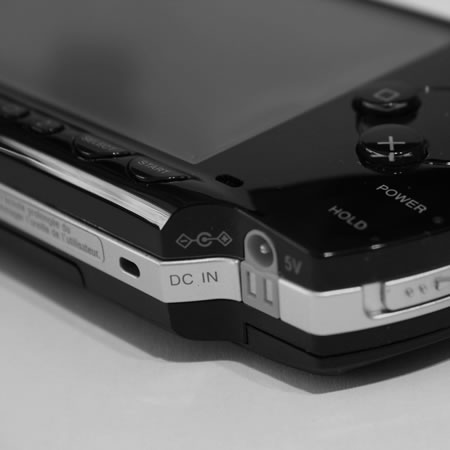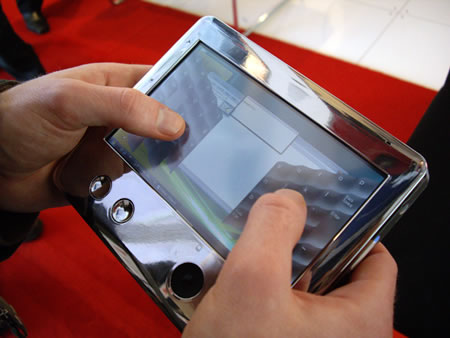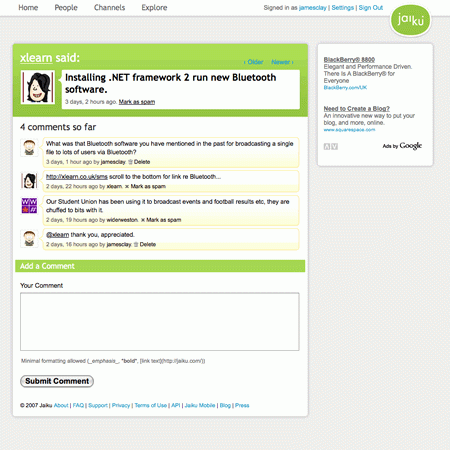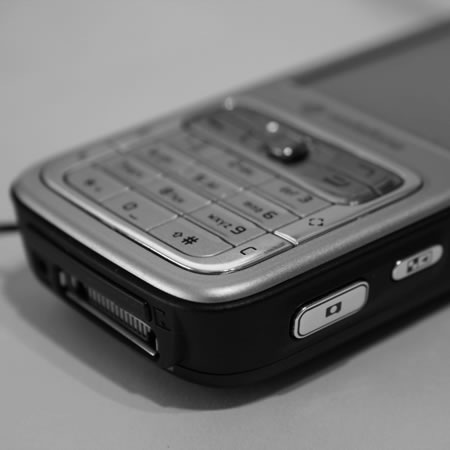If you are like me you depend on your mobile phone.
Actually if you are like you depend on your mobile phone and 3G dongle for data.
I actually rarely use my mobile phone for actual phone calls, for me mobile data is what I use all the time.
I use it to allow my laptop to connect to the web, for all those kind of laptop based activities, browsing, e-mail, etc…
I use mobile data to Shozu my photographs from my phone to Flickr.

I use mobile data to update my Jaiku feed and use SMS to update Twitter.
I (now and again) browse the internet on the web browser on my phone – usually t find out if my train is delayed or cancelled or for traffic reports.
I use mobile data to allow me to stream live video from my phone via Qik.com to other locations.
If you are like me you depend on your mobile phone for mobile data, or you might just use the phone for phone calls!
Anyhow I was interested to read on the BBC website about a new technology which will make it easier to get a better signal.
The signal strengths of laptops and mobile phones are set to be radically improved if new technology developed by Oxford scientists comes to fruition.
Engineers at Isis, a technology transfer spin-out company of the University of Oxford, have found a way of creating antennas which can work in three “planes” but that are small enough to fit in hand-held devices.
Now if you are making a phone call and the signal strength drops, what you notice is a reduction in the quality of the call.
However with mobile data, if the signal strength drops, you find that internet access crawls and often you are faced with timeouts. You can replicate this by using 3G in a moving vehicle such as a train or a car.
If the signal strength can be increased this means that you can have greater reliability in using mobile data then you can now, which means you would be able to rely on it working rather than hoping it would work.








